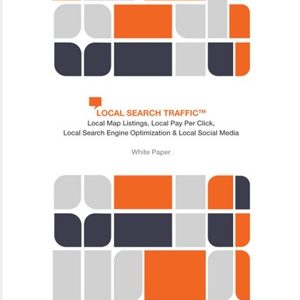
Google, leveraging its extensive resources, is informing businesses about tech legislation through emails and various platforms. Users of Google Business Profiles and other related properties might have received emails alerting them about impending legislation that could affect their operations. Beyond emails, Google has published blogs and created online resources to educate people on the possible repercussions of these legal measures.
One such piece of legislation, the American Innovation and Choice Online Act, aims to prevent companies like Google from engaging in discriminatory practices on their platforms. Google, along with other tech giants, is mobilizing efforts to oppose this recent legislative proposal.
### Google’s Grassroots Campaign
According to sources, the email distributed by Google mentions that the legislation could have unintended effects on businesses using digital tools like Google Ads, Gmail, Google Analytics, and Docs. It suggests that the proposed law could complicate the visibility of business listings on Google Search and Maps, reduce productivity, and incur additional costs for businesses.
The email from Google does not explicitly name the bill, nor does it provide information on where to find it. This reflects Google’s attempt to control the narrative around the proposed law rather than encouraging businesses to seek independent information.
### Understanding the American Innovation and Choice Online Act
This bipartisan initiative seeks to address antitrust and consumer choice issues involving major online platforms. The legislation targets companies with more than 50 million active monthly users or 100,000 business users, significant market capitalizations or sales figures, and those serving as essential trading partners for business users.
The bill grants antitrust agencies the authority to impose penalties for certain behaviors:
– Favoring their own products over those of competitors on the platform.
– Limiting competing products.
– Implementing discriminatory terms of service that hinder competition.
– Using non-public data from business users to benefit the platform’s products.
– Restricting preinstalled applications or default settings that direct users to their products.
– Retaliating against those who raise concerns.
The ambiguous language of the bill is compared to the early formulations of the UK’s Data Protection Act 2018, which initially confused many about GDPR compliance. Critics argue that the bill could hinder consumers and businesses, although supporters claim it could prevent discriminatory practices.
### Google’s Opposition Campaign
Google’s campaign against the bill includes an online platform where individuals can send pre-written messages to their representatives opposing the legislation. This site details potential impacts on businesses, such as the removal of contact and operational information from Google services, disruption of connectivity among Google ad products and analytics, and separation of integrated tools like Gmail, Docs, and Calendar.
### Does Google’s Campaign Highlight the Bill’s Necessity?
Google’s use of its platform to sway opinion against the bill prompts questions about whether the legislation is necessary to curb the influence of tech giants on businesses. Proposed for consumer and business protection against major players like Google and Amazon, the bill is seen by Google as causing more harm than good. The final decision rests with Congress, though companies affected by the bill will likely continue efforts to challenge or alter it.



